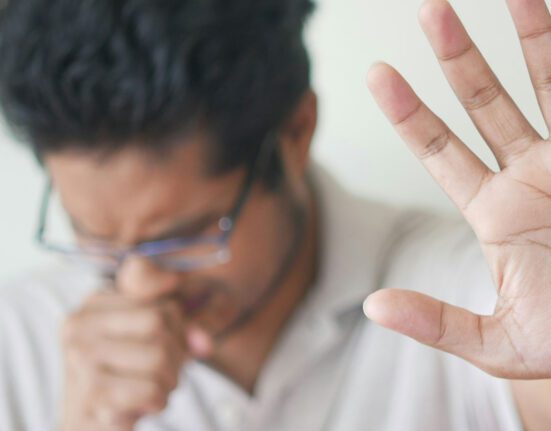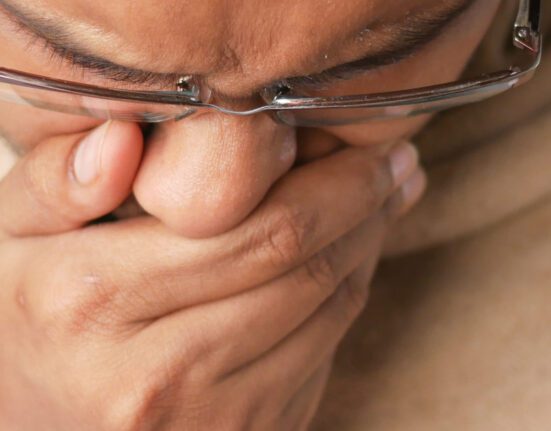SOURCE: Evans R, Pick A, Lardner R, Masey V, Smith N, Greenhalgh T. Breathing difficulties after covid-19: a guide for primary care. bmj. 2023 Jun 14;381. We have provided a summary below but if you are a Family Physician we suggest you read the article in full as it valuable diagnostic guide.
Post-Covid breathing difficulties present complex challenges, but with a pragmatic approach, tailored interventions, and ongoing research, we’re empowering patients to breathe easier and navigate the road to recovery with confidence
Summary:
Breathing difficulties are a common complication of Covid-19, persisting beyond the acute phase of the illness in a significant proportion of patients. These difficulties manifest in various forms and can significantly impact individuals’ quality of life. Notably, around one in four hospitalized adults and one in six non-hospitalized adults experience persistent breathing issues beyond four weeks post-infection, with some studies indicating breathlessness can endure beyond two years.
The presentation of breathing difficulties post-Covid can vary, ranging from breathlessness to chest pressure or pain. While radiological changes may clear within weeks, breathing issues can persist, often necessitating further investigation to rule out other underlying causes, such as cardiorespiratory complications or post-Covid multisystem involvement.
Breathing pattern disorder (BPD) emerges as a significant contributor to post-Covid breathing difficulties. BPD, characterized by inefficient breathing, can be positively diagnosed through clinical examination and history-taking, though parallel investigations may be required. Effective self-management tools and timely referral to specialist respiratory physiotherapy can aid in alleviating symptoms.
Despite the lack of definitive, evidence-based protocols for treating persistent breathlessness post-Covid, a pragmatic approach emphasizing a thorough history and examination, along with appropriate investigations, can help identify treatable conditions and improve patient outcomes. It’s essential to recognize the complex nature of breathlessness, influenced by factors like pre-existing respiratory conditions, dysautonomia, and psychological distress.
For patients grappling with post-Covid breathlessness, understanding their concerns and addressing questions about the seriousness of their condition, available tests, self-management strategies, and potential specialist referrals is crucial. While not all patients may require specialist intervention, those with severe or progressive symptoms, or whose diagnosis remains uncertain, may benefit from referral to specialized services or long Covid clinics.
Breathing exercises, tailored treatment plans, and rehabilitation programs, including breathing retraining techniques, have shown promise in managing post-Covid breathlessness. Ongoing research aims to elucidate the underlying mechanisms and treatments for long Covid-related breathing difficulties, emphasizing the need for objective markers to guide diagnosis and treatment.
Main Points:
- Breathing difficulties post-Covid affect a significant number of patients, persisting beyond the acute phase.
- Symptoms include breathlessness, chest pressure, and pain, often causing considerable distress.
- Breathing pattern disorder (BPD) emerges as a significant contributor, diagnosed through clinical examination and history-taking.
- Self-management tools and specialist respiratory physiotherapy can aid in symptom alleviation.
- A pragmatic approach, emphasizing thorough history-taking and appropriate investigations, helps identify treatable conditions.
- Patients benefit from understanding the seriousness of their condition, available tests, and potential specialist referrals.
- Breathing exercises, tailored treatment plans, and rehabilitation programs show promise in managing post-Covid breathlessness.
- Ongoing research aims to understand underlying mechanisms and develop effective treatments, emphasizing the need for objective markers for diagnosis and treatment guidance.
Post-Covid breathing difficulties present complex challenges, but with a pragmatic approach, tailored interventions, and ongoing research, we’re empowering patients to breathe easier and navigate the road to recovery with confidence
Long Covid The Answers
Credible Source:
Evans R, Pick A, Lardner R, Masey V, Smith N, Greenhalgh T. Breathing difficulties after covid-19: a guide for primary care. bmj. 2023 Jun 14;381.








